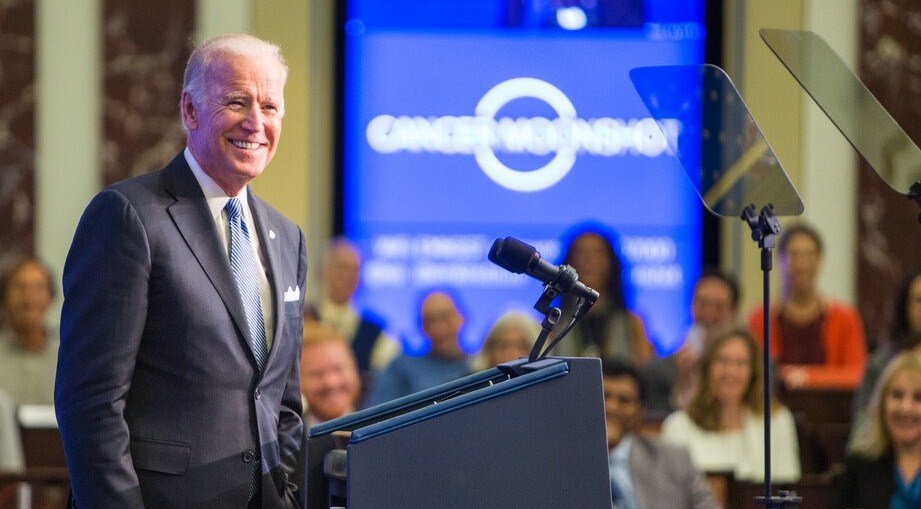President Joe Biden has taken a different approach from his predecessor when it comes to international trade policy, especially regarding the role of tech giants like Facebook, Google and Amazon. The Biden administration has signaled that it will not let these companies write the rules of global trade, but rather pursue a more balanced and multilateral strategy that protects the interests of workers, consumers and the environment.
The Executive Order on Competition
One of the most significant actions that Biden has taken to curb the power of tech giants is the executive order on promoting competition in the American economy, which he signed in July 2021. The order includes 72 actions and recommendations that involve a dozen federal agencies, and is intended to reshape the thinking around corporate consolidation and antitrust laws.
The order specifically targets the practices of tech companies that stifle competition, such as acquiring potential rivals, charging excessive fees, discriminating against smaller businesses, and collecting vast amounts of personal data. The order also encourages the Federal Trade Commission (FTC) and the Department of Justice (DOJ) to review and revise the merger guidelines, and to enforce the antitrust laws vigorously.
The order also addresses the issue of labor mobility, which affects many workers in the tech sector. The order calls for banning or limiting non-compete agreements and occupational licensing restrictions that prevent workers from switching jobs or starting their own businesses. The order also supports the right of workers to organize and bargain collectively, and to have a voice in the workplace.
The Trade Agenda and the WTO
Another aspect of Biden’s trade policy that affects the tech sector is his approach to the World Trade Organization (WTO), the multilateral body that sets the rules of international trade. The Trump administration had blocked the appointment of new judges to the WTO’s appellate body, effectively paralyzing the dispute settlement system. The Biden administration has indicated that it will work with other members to reform the WTO and restore its functionality, but it has not yet lifted the blockage.
The Biden administration has also expressed its support for the WTO’s e-commerce negotiations, which aim to establish a global framework for digital trade. The negotiations cover issues such as data flows, data localization, privacy, consumer protection, and cybersecurity. However, the negotiations face several challenges, such as the divergent views of the US, the EU, and China on data governance, and the concerns of developing countries about digital divide and taxation.
The Biden administration has also signaled that it will not pursue new bilateral or regional trade agreements in the near future, but rather focus on enforcing and improving the existing ones, such as the US-Mexico-Canada Agreement (USMCA) and the US-Korea Free Trade Agreement (KORUS). The administration has also said that it will review the Comprehensive and Progressive Agreement for Trans-Pacific Partnership (CPTPP), the successor of the Trans-Pacific Partnership (TPP) that Trump withdrew from, but it has not committed to joining it.
The China Challenge
Perhaps the most complex and contentious issue in Biden’s trade policy is how to deal with China, the world’s second-largest economy and a strategic rival of the US. The Biden administration has inherited a trade war that Trump initiated, which involved imposing tariffs on hundreds of billions of dollars worth of goods, and restricting the access of Chinese tech companies to the US market. The Biden administration has not lifted the tariffs or the restrictions, but it has said that it will conduct a comprehensive review of the trade relationship with China, and seek to cooperate on areas of common interest, such as climate change and public health.
The Biden administration has also adopted a multilateral approach to counter China’s unfair trade practices, such as subsidies, state-owned enterprises, forced technology transfer, and intellectual property theft. The administration has joined forces with the EU, Japan, and other allies to coordinate policies and actions, and to reform the WTO rules to address these challenges. The administration has also supported the creation of a Trade and Technology Council with the EU, which aims to foster cooperation and coordination on digital and technology issues, such as standards, regulation, innovation, and security.
The Biden administration has also taken steps to enhance the competitiveness and resilience of the US tech sector, and to reduce its dependence on China for critical supplies and components. The administration has proposed and enacted several laws that provide funding and incentives for research and development, innovation, and manufacturing in key sectors, such as semiconductors, artificial intelligence, biotechnology, and clean energy. The administration has also launched a supply chain review to identify and address the vulnerabilities and risks in the production and distribution of essential goods and services.
Biden’s trade policy represents a departure from the laissez-faire and unilateral approach of the Trump administration, and a return to a more balanced and multilateral approach that takes into account the interests and values of the US and its allies. The policy also reflects the recognition of the challenges and opportunities posed by the digital and technological transformation of the global economy, and the need to foster a fair and open environment for trade and innovation. The policy also acknowledges the complexity and interdependence of the relationship with China, and the necessity to engage and compete with it in a strategic and effective manner.

